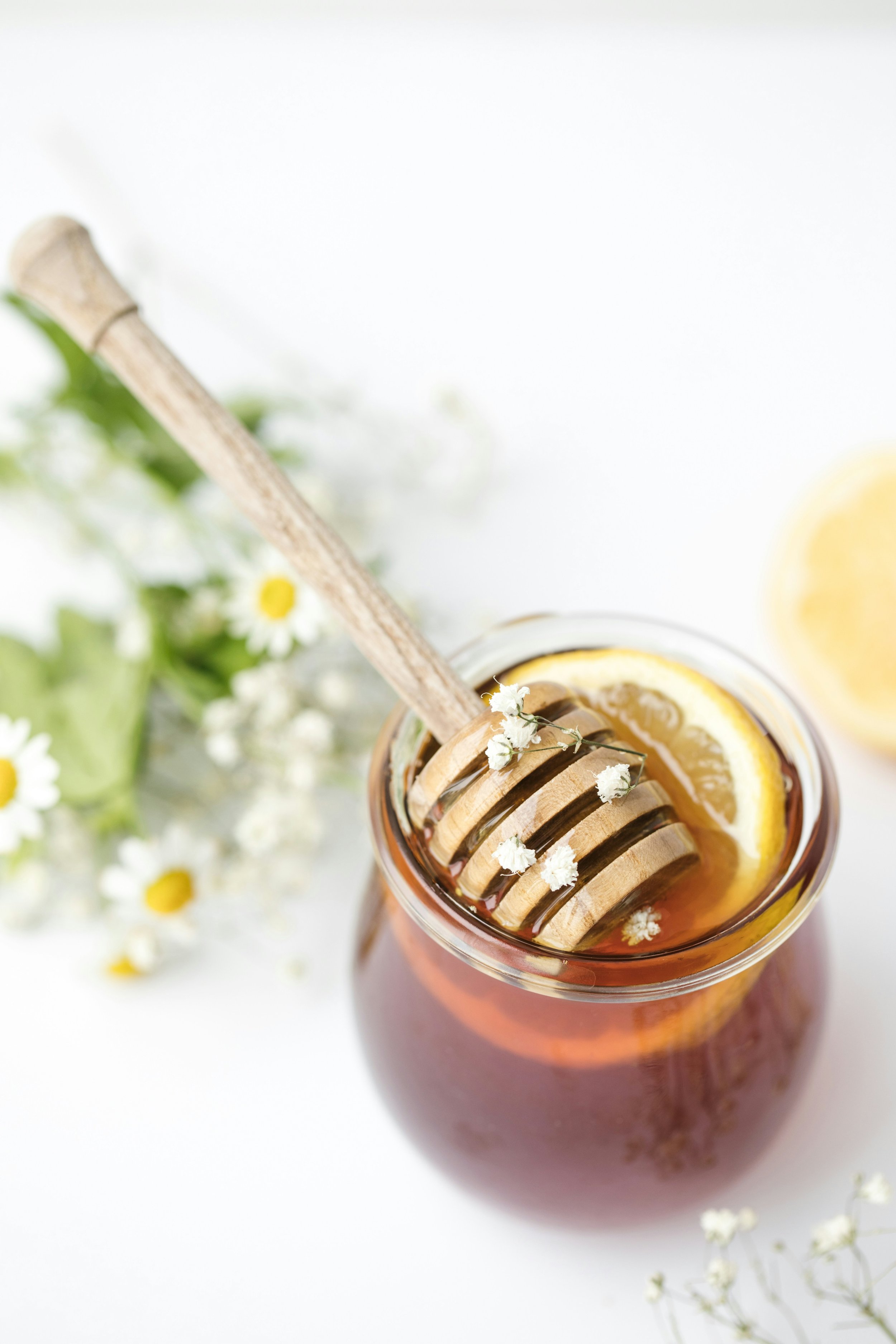Six Foods to Eat for Allergy Relief
BY AMY LUPTON
This month we have been chatting all things allergies! If you are an allergy sufferer, you want to do anything to get rid of seasonal allergies.
Before reading this blog, check out our other blogs in this series, see Root Cause of Allergies & How Nettle Brings Relief, and Why Honey Works for Allergies. They are a great place to start.
This week we will talk about some of my favorite foods that help with allergy relief. We already discussed nettle and honey (they are amazing!), but this week we dive into some other foods that can give you allergy relief, what the mechanisms are for why they work, and how they can help the rest of the body too!
These foods can also be categorized as herbs or superfoods, but they are great to work into your lifestyle if you have allergies from the environment around you.
Don’t want to eat them? Most of these can be taken in capsule or tea form.
Top 6 Foods for Allergy Relief
Bone Broth
Yes, broth is good for almost everything. A true superfood, your grandmother knew it, and you should too! Bone broth is a powerful natural remedy for allergies due to its gut-healing, anti-inflammatory, and immune-boosting properties.
Our favorite things about bone broth:
Supports gut health & reduces allergic reactions. Many allergies are linked to leaky gut (or increased permeability in the intestinal lining), where undigested food particles and toxins enter the bloodstream, triggering an immune response. Leaky gut happens because of the root causes of allergies (see our Root Cause of Allergies blog here). Broth is rich in gelatin, collagen, and amino acids (like glutamine) that help heal the gut lining, reducing food sensitivities and allergic reactions all around. Win!
Broth is a nutrient rich food to feed the body. Bone broth contains minerals (zinc, magnesium, calcium, phosphorus) that support immune function. It is also packed with nutrients like amino acids & vitamins that help the body function optimally, reducing overall sensitivity to allergens. Glycosaminoglycans (GAGs) in broth support healthy joints & skin, which can be affected by allergies.
Broth reduces inflammation. Allergies cause inflammation in the respiratory system, skin, and gut. Bone broth contains glycine and proline, which have anti-inflammatory effects and help reduce swelling, mucus buildup, and nasal congestion.
Broth thins mucus & clears airways. Warm bone broth acts as a natural decongestant, helping to thin mucus & clear nasal passages.
Ways to get your bone broth (make your own if you can!).
Drink 1–2 cups daily during allergy season for best results.
Use it as a base for soups, stews, or rice to get its healing benefits.
Add anti-allergy ingredients like ginger, turmeric, garlic, and cayenne pepper (which we will talk about below!) to enhance its effects.
Turmeric
Turmeric can help with allergies primarily because of its active compound, curcumin, which has powerful anti-inflammatory, antioxidant, and immune boosting properties. It’s such a mighty food/herb/superfood and has gotten a lot of press over the last few years. Check out this herb for sooo many wide range medicinal properties for your whole body.
Here are our fave things about turmeric in regards to allergies:
It’s natural anti-histamine properties help stabilize mast cells, reducing histamine release and easing allergy symptoms.
Turmeric reduces inflammation. Allergies cause inflammation in the nasal passages, sinuses, and airways. It helps to reduce swelling and mucus buildup, making it easier to breathe. Hint hint: It will help reduce inflammation over your whole body!
Turmeric supports immune system balance. It can help reduce overactive immune responses that trigger allergy symptoms.
Ways to consume the mighty turmeric:
To get the most benefits, consume turmeric with black pepper (which enhances curcumin absorption by up to 2000%).
Make golden milk (turmeric + warm milk + black pepper + honey).
Make turmeric tea (turmeric + ginger + lemon + honey).
Add to smoothies, soups, or curries.
Add in a turmeric supplements (consult a doctor for dosage, but a high quality turmeric supplement should contain a potent dose of around 200mg extract of turmeric and 15mg of black pepper).
Ginger
Ginger is by far my favorite herb to boost immunity and it tastes yummy too! Ginger is similar to turmeric in its properties of being anti-histamine, immune boosting and anti-inflammatory.
Here are some of our fave things about ginger:
Ginger can help block histamine activity, reducing allergy symptoms naturally.
Ginger reduces inflammation. Ginger’s bioactive compounds (like gingerol) help reduce swelling and mucus buildup, relieving congestion.
Ginger supports respiratory health. Ginger acts as a natural bronchodilator, helping to open up airways and reduce coughing or wheezing. It’s especially useful for seasonal allergies and allergic asthma.
To get the most benefits with ginger, try:
Our fave is low-sugar ginger kombucha (we like GT brand Gingeraid)
Ginger tea (boil fresh ginger with lemon and honey)
Adding ginger to stir-fries, rice dishes, and soups and stews.
Chewing raw ginger slices for quick relief. This isn’t for the faint of heart, but effective!
Ginger supplements. Make sure to get organic.
Cinnamon
Cinnamon is an all around superfood. And it tastes yummy on almost everything, and is used around the world in many cultures. :) It has some well-researched antimicrobial, anti-inflammatory, antihistamine, and blood sugar balancing properties. We could go on and on about how amazing cinnamon is!
Here are a couple of ways we sing cinnamon praises for allergies:
Clears sinuses & congestion. Cinnamon has warming properties that help loosen mucus and clear nasal passages. Drinking cinnamon tea or inhaling cinnamon-infused steam can help relieve a stuffy nose. Even applying cinnamon chapstick can have an effect on stuffy noses.
Antimicrobial Benefits. If allergies make you prone to sinus infections, cinnamon’s natural antibacterial and anti-fungal properties can help keep infections at bay.
Ways to incorporate cinnamon:
Cinnamon & honey paste – A mix of cinnamon and raw honey can help soothe allergies and throat irritation. This is super yummy to put in an herbal tea, coffee, or just warm water.
Adding cinnamon to coffee, tea, on fruit.
Garlic
Garlic is amazing! It also makes everything taste amazing, so why wouldn’t you add it to your dishes? Raw garlic is very powerful, strong, and cooked garlic is more gentle but effective. Garlic contains quercetin, a natural compound that helps block histamine release. Garlic also contains allicin, a powerful anti-inflammatory compound that helps reduce swelling and mucus buildup.
Here’s a couple of our fave things about garlic and allergies:
Garlic boosts immune function, making the body less reactive to allergens like pollen, dust, or pet dander. It also helps prevent secondary infections, such as sinus infections, that can develop from allergies.
Garlic Acts as a Natural Decongestant. Garlic has expectorant properties, meaning it helps clear mucus from the respiratory system.
How to Use Garlic for Allergies
Raw Garlic – Eating 1–2 raw cloves daily (or adding them to meals) gives the best allergy-fighting benefits. Add to a salad dressing, salsa, or sauce.
Garlic & Honey Paste – Mixing raw garlic with honey helps with congestion and throat irritation.
Garlic Supplements – If you don’t like the taste of raw garlic, odorless garlic capsules are an alternative.
Cayenne Pepper
Last but certainly not least is cayenne pepper. It will definitely spice up your life! :) If you do ok with nightshades (such as peppers and tomatoes), then you want to work this spice and medicinal herb into your routine.
Our many praises for cayenne pepper and allergies include:
Cayenne pepper contains capsaicin, the compound responsible for its heat. Capsaicin can help thin mucus, making it easier to clear nasal passages and sinuses. It also stimulates mucus flow, helping to flush out allergens from the nasal passages. You know when you eat a hot pepper and your nose runs, eyes water? That’s the capsaicin at work!
Cayenne pepper boosts circulation. Capsaicin increases blood circulation, which can help the body remove allergens from the system more quickly.
Acts as a Natural Pain Reliever. If you experience headaches or sinus pressure due to allergies, cayenne pepper can provide relief. Capsaicin has been shown to reduce pain by inhibiting pain receptors, which can help ease the discomfort from sinus headaches or pressure.
How to spice up your life with cayenne.
Add it to tea or beverages – A pinch of cayenne pepper in your honey-lemon-ginger tea can clear your sinuses and help reduce inflammation.
Make a vinegar, pineapple juice and cayenne pepper shooter. Such a great start to the day for inflammation and immune system balance. 1 tbs vinegar, 2 oz pineapple juice and a sprinkle of cayenne.
Make a hot salsa or sauce and top your food!
Capsaicin supplements – If you prefer, you can take capsaicin in supplement form. There are many allergy supplements that include it.
Organic Bone Broth, Eggs, Honey, Sourdough, & more!










